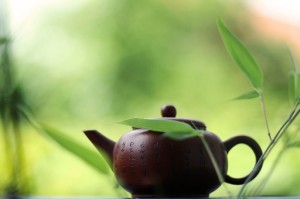We can make a little stretch and consider green tea a magical potion. It has been used for centuries to treat various afflictions – in Asia they knew it lowered blood pressure and prevented cancer thousands of years before we even know of its existence.
Green tea also has more health benefits than black tea does because of the method through which they are processed – the black tea goes through a fermentation process whereas green tea doesn’t; this keeps all the substances inside the tea leaves, such as antioxidants. Let’s take a look some of the tea’s benefits.
- Weight Loss. It makes the metabolism works faster and the polyphenol inside the tea will aid the fat burning process. If you ponder starting a weight loss plan, the most important thing you will have to do is get your blood tested and see where you stand.
- Headaches. Studies have shown that drinking green tea will lower the occurrence of headaches and can even act as treatment for when they do happen. You could give it a try, the next time you have a headache, you’ve got nothing to lose.
- Heart Disease. Green tea relaxes the blood vessels and this helps them deal better with changes in the blood pressure and protect against the development of clots – which the primary reason of heart attacks.
- Alzheimer’s. Green tea is said to delay the damage caused by Alzheimer’s and even Parkinson’s. Studies are still being conducted, so there’s no official stand point on this, but it won’t hurt to try.
- Blood Pressure. If you drink green tea regularly, you reduce the risk of developing high blood pressure.
- Anti-viral and Anti-bacterial. Tea catechins are antibacterial agents. Green tea will inhibit the spread of some diseases such as the common cold.
- Diabetes. You can also regulate your glucose levels by drinking green tea before eating – it can avert high insulin spikes.
Some say two cups a day are enough to get all the goodness out of it, while others say five cups or more. What do you think? If you are sensitive to caffeine you should drink less than two cups. It also contains tannins, so if you are pregnant it could interfere with the absorption of iron and Vitamin B1.

